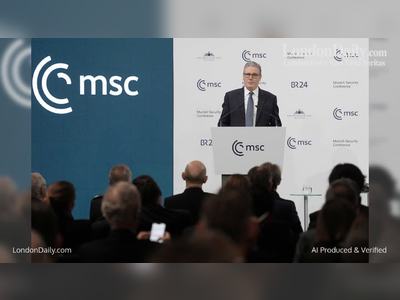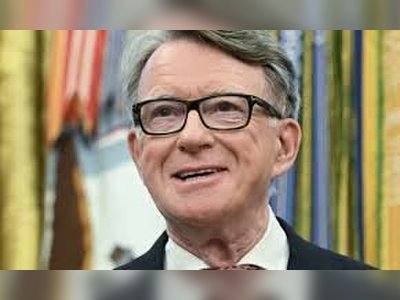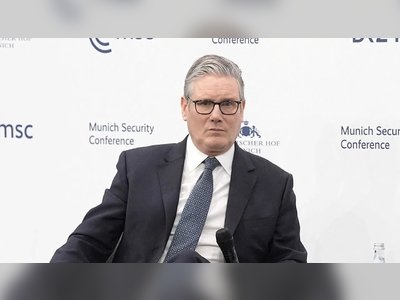
When people in the richest economies aren’t so well off, something’s amiss
The latest World Bank research highlights the inadequacy of GDP to assess wealth, compared with the money in people’s pockets. If environmental factors and the impact of inequality were included, the top 10 list might look different.
Let me pose a trivia question for today: what are the world’s 10 richest economies, on a per capita basis? I imagine most of your guesses would include the United States, Germany and Japan, and on all three counts you would be wrong.
According to the World Bank’s just-published report by the International Comparison Programme (ICP), which every five years or so takes a microscope to 176 countries worldwide, the list is headed by Luxembourg, which in 2017 (the most recent comparison year) boasted GDP per capita of almost US$113,000.
Qatar and Singapore follow, with just over US$90,000, then Ireland, Bermuda, the Caymans, Switzerland, the United Arab Emirates, Norway and Brunei.
Bundling them all together, the 10 richest economies in the world account for a total of just under 38 million people – barely half a per cent of the world’s 7.8 billion population.
The list also calls for extreme caution in trying to use gross domestic product to assess a country’s wealth, compared with the money that sits in people’s pockets. As Princeton economist Angus Deaton notes: “Whatever this list tells us, it is hardly an exact list of countries where people enjoy the world’s highest material living standards.”
Almost all are investment hubs or natural resource exporters in which only a tiny proportion of the population reap the kind of rewards that might justify high affluence ratings. Deaton reminds us that “at any given moment, GDP per capita includes amounts that are not part of people’s current well-being”. The average Irish citizen might say “Yea” to that.
But I am not here to beat up on statisticians and statistics, or to call for the abolition of GDP numbers – whatever their limitations as a guide to our economic progress or our success in eradicating poverty.
Instead, I am enthused by the massive and largely unnoticed bean-counting exercise involved in the International Comparison Programme, and its value in drawing attention to the persistent misuse of GDP.
This is not just because the World Bank’s ICP team leads efforts to recognise the differences between simple exchange rate measures of GDP, and how this equates to our purchasing power (GDP on the basis of purchasing power parity or PPP) as it is influenced by inflation and currency shifts – though these differences amount to a lot.
For example, in PPP terms, the global economy at the end of 2017 stood at around US$120 trillion – compared with GDP measured by current exchange rates at around US$80 trillion. And if you look at the world’s two leading economies, the differences are stark. On an exchange rate basis, at the end of 2019 China’s GDP was $14.34 trillion – just 67 per cent of the US’ US$21.37 trillion. But on a PPP basis, the ICP tells us both China and the US were at the end of 2017 on a par at just under US$20 trillion.
The ICP’s exercise is also valuable because it tries very hard to get closer to measures of livelihoods in each of our economies, by measuring what it calls “actual individual consumption” (AIC). This is of particular interest to us in Hong Kong because this measure lifts the United States to the top of the list (US$44,620 per capita), and then pops Hong Kong in at No 2 worldwide, with AIC per capita amounting to US$42,371.
While the ICP study does not delve into how inequalities within economies confound such rosy measures of overall wealth – a glaring issue in both Hong Kong and the US – it does at an aggregate and regional level provide interesting glimpses into the inequalities that separate us.
It calculates that the 70 economies that fall into the “high income” category with a gross national income per capita of more than US$12,376 account for just 16.6 per cent of the world’s population, but a striking 48.8 per cent of the global economy on a PPP basis. The 30 “low income” economies (GNI per capita below US$1,025) account for 7.7 per cent of the world’s population, but just 0.8 per cent of global GDP.
While the East Asian economies (dominated by China) account for 31.1 per cent of the world’s GDP and a reasonably proportionate 31.5 per cent of the world’s population, other regions across the world show no such equilibrium.
South Asia (dominated by India) accounts for 23.9 per cent of the world’s population but just 8.5 per cent of global GDP, while North America (dominated by the US), with 5 per cent of the world’s population, accounts for 17.8 per cent of global GDP. Europe dominates similarly, with just 12.1 per cent of the world’s population, but 25.8 per cent of global wealth.
For those who complain that high incomes are of little comfort if local prices are very high, the message for Hong Kong is relatively comforting. Against a global Price Level Index averaging 100, Hong Kong is assessed to be moderately expensive, at 116, but this compares very favourably with European economies like Norway (192), Sweden (164), Austria (138) and Switzerland (204). It also compares well with the US (150), Japan (141), and with our antipodean friends New Zealand (152) and Australia (169).
And those who would like to live more cheaply may perhaps want to think twice. How many would want to swap our quality of life for that in the Philippines, Thailand (both 55) or Indonesia (53), or in the Central Asian republics where prices seem to average around one-third of those here in Hong Kong?
Whether you agree with the involvement of the Chinese government in the Chinese economy, the role of state enterprises, heavy investment in infrastructure or the extensive use of subsidies, the ICP bean counters illustrate vividly China’s global leadership here.
The report says China accounted in 2017 for almost 15 per cent (US$3.5 trillion) of the world’s government spending, with the US at 11 per cent and Japan at less than 6 per cent.
As Deaton notes, this massive ICP exercise does not call for the abolition of GDP measures, but reminds us of the need “for a more intelligent use of the accounts and for measuring what it does not include” – like environmental factors, and the impact of inequality. Perhaps then our top 10 list might look a little different.
According to the World Bank’s just-published report by the International Comparison Programme (ICP), which every five years or so takes a microscope to 176 countries worldwide, the list is headed by Luxembourg, which in 2017 (the most recent comparison year) boasted GDP per capita of almost US$113,000.
Qatar and Singapore follow, with just over US$90,000, then Ireland, Bermuda, the Caymans, Switzerland, the United Arab Emirates, Norway and Brunei.
Bundling them all together, the 10 richest economies in the world account for a total of just under 38 million people – barely half a per cent of the world’s 7.8 billion population.
The list also calls for extreme caution in trying to use gross domestic product to assess a country’s wealth, compared with the money that sits in people’s pockets. As Princeton economist Angus Deaton notes: “Whatever this list tells us, it is hardly an exact list of countries where people enjoy the world’s highest material living standards.”
Almost all are investment hubs or natural resource exporters in which only a tiny proportion of the population reap the kind of rewards that might justify high affluence ratings. Deaton reminds us that “at any given moment, GDP per capita includes amounts that are not part of people’s current well-being”. The average Irish citizen might say “Yea” to that.
But I am not here to beat up on statisticians and statistics, or to call for the abolition of GDP numbers – whatever their limitations as a guide to our economic progress or our success in eradicating poverty.
Instead, I am enthused by the massive and largely unnoticed bean-counting exercise involved in the International Comparison Programme, and its value in drawing attention to the persistent misuse of GDP.
This is not just because the World Bank’s ICP team leads efforts to recognise the differences between simple exchange rate measures of GDP, and how this equates to our purchasing power (GDP on the basis of purchasing power parity or PPP) as it is influenced by inflation and currency shifts – though these differences amount to a lot.
For example, in PPP terms, the global economy at the end of 2017 stood at around US$120 trillion – compared with GDP measured by current exchange rates at around US$80 trillion. And if you look at the world’s two leading economies, the differences are stark. On an exchange rate basis, at the end of 2019 China’s GDP was $14.34 trillion – just 67 per cent of the US’ US$21.37 trillion. But on a PPP basis, the ICP tells us both China and the US were at the end of 2017 on a par at just under US$20 trillion.
The ICP’s exercise is also valuable because it tries very hard to get closer to measures of livelihoods in each of our economies, by measuring what it calls “actual individual consumption” (AIC). This is of particular interest to us in Hong Kong because this measure lifts the United States to the top of the list (US$44,620 per capita), and then pops Hong Kong in at No 2 worldwide, with AIC per capita amounting to US$42,371.
While the ICP study does not delve into how inequalities within economies confound such rosy measures of overall wealth – a glaring issue in both Hong Kong and the US – it does at an aggregate and regional level provide interesting glimpses into the inequalities that separate us.
It calculates that the 70 economies that fall into the “high income” category with a gross national income per capita of more than US$12,376 account for just 16.6 per cent of the world’s population, but a striking 48.8 per cent of the global economy on a PPP basis. The 30 “low income” economies (GNI per capita below US$1,025) account for 7.7 per cent of the world’s population, but just 0.8 per cent of global GDP.
While the East Asian economies (dominated by China) account for 31.1 per cent of the world’s GDP and a reasonably proportionate 31.5 per cent of the world’s population, other regions across the world show no such equilibrium.
South Asia (dominated by India) accounts for 23.9 per cent of the world’s population but just 8.5 per cent of global GDP, while North America (dominated by the US), with 5 per cent of the world’s population, accounts for 17.8 per cent of global GDP. Europe dominates similarly, with just 12.1 per cent of the world’s population, but 25.8 per cent of global wealth.
For those who complain that high incomes are of little comfort if local prices are very high, the message for Hong Kong is relatively comforting. Against a global Price Level Index averaging 100, Hong Kong is assessed to be moderately expensive, at 116, but this compares very favourably with European economies like Norway (192), Sweden (164), Austria (138) and Switzerland (204). It also compares well with the US (150), Japan (141), and with our antipodean friends New Zealand (152) and Australia (169).
And those who would like to live more cheaply may perhaps want to think twice. How many would want to swap our quality of life for that in the Philippines, Thailand (both 55) or Indonesia (53), or in the Central Asian republics where prices seem to average around one-third of those here in Hong Kong?
Whether you agree with the involvement of the Chinese government in the Chinese economy, the role of state enterprises, heavy investment in infrastructure or the extensive use of subsidies, the ICP bean counters illustrate vividly China’s global leadership here.
The report says China accounted in 2017 for almost 15 per cent (US$3.5 trillion) of the world’s government spending, with the US at 11 per cent and Japan at less than 6 per cent.
As Deaton notes, this massive ICP exercise does not call for the abolition of GDP measures, but reminds us of the need “for a more intelligent use of the accounts and for measuring what it does not include” – like environmental factors, and the impact of inequality. Perhaps then our top 10 list might look a little different.











